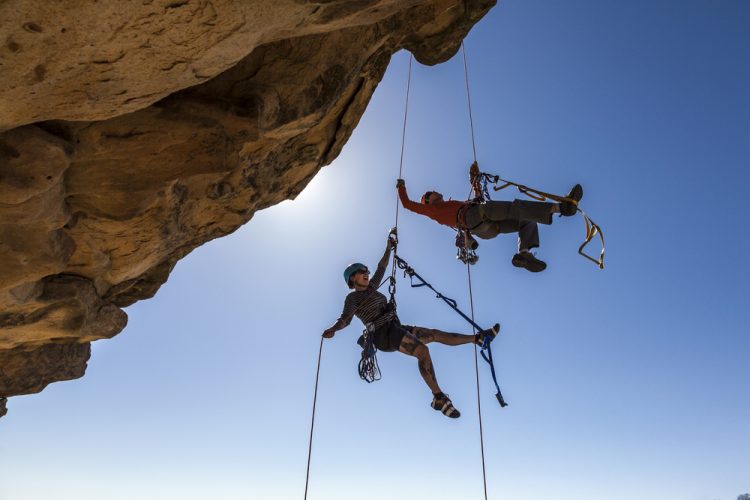Or how to stop wasting some of your life in four easy steps.
Coronavirus has made a difference in so many ways. One difference is the way in which some of the awful things that happen in meetings become a bit more obvious and stark, when we hold meetings online. It is fast being recognised in the UK that politicians who relied on the jeering (and whispered suggestions) of parliamentary colleagues are now rather exposed in the calm of a Zoom parliamentary question time. In smaller ways our online meetings are showing-up the taken-for-granted time-wasting.
I am encountering teams who are saying,
“now is an opportunity to shift the ways some things are done, especially meetings.”
I’m working with managers who are jointly agreeing standards for their meetings. They are managers who want to challenge the way unproductive meeting habits have successfully mutated across generations of meetings, to live on for decades. You know the kind of thing I mean. Things like:
- Nobody being held to account for what they agreed to do at the last meeting.
- Agendas you cannot prepare for, because it’s unclear if a given topic means information will be supplied, or a decision has to be made, or ideas will be asked for.
- A chair assuming the silence of the majority - following the voices of the usual suspects- means consent to a proposal.
- Agenda papers so long, no-one could be expected to read them, and with no summary.
- Rooms full of people with ideas, but where in every meeting it is expected that only one person can speak at a time. Perish the thought that 3 minutes be spent on consulting with the colleague next to you, about possible solutions.

Perhaps our current attempts to take collaborating, problem-solving and planning online, is the opportunity for some bold souls to take a lead, maybe just with their team, or their department or their division.
Maybe this online migration is a chance that some will now take, to prevent some of the huge amount of time, wasted in meetings, that most participants privately acknowledge to be dire.
For proof that this issue about time-wasted, is much, much, more than a therapeutic muttered grumble with a colleague, try writing down these three numbers about an undisputably, unproductive meeting you regularly attend. The three numbers are:
How many people in the meeting X How many hours it lasts x How often it meets = Number of people hours each year or month.
What do you call productive?
Now you know how many people hours a year is spent on that meeting, you can ask, “is that number a productive number? Or is it wastage?”
Is your answer likely to be the same for most of the other people in that meeting?
What number do you get, if you take the answer and multiply it by average hourly pay of everyone there? Is that number one you are happy for your organisation to pay? Does that meeting create more value than it costs?
But here’s the awful reality about meetings in the early 21st century.
Can you guess which well-known person complained repeatedly about spending all their time at work attending meetings that over-ran and made them late for the next meetings? Who said, “This goes on all day until I leave work, which is when I can at last start work”?
You’d be forgiven for thinking that most people managing in most organisations have probably said that. And they probably have.
If you haven’t already guessed it, the most famous person to have said this was John Cleese. He said it in a ground-breaking training video “Meetings Bloody Meetings”. It was made in 1976 for Video Arts, and it is retailing still, in the US today, for about $1000. And that brilliantly scripted video nailed a whole list of enormously unproductive behaviour which is still alive and well in most organisations, private and public sector.
Non-productive meetings are alive, well and abusing our working lives. Why do we allow this? Why do you allow it?
Perhaps now, over 40 years after that wonderful video, there is a real opportunity to change the ways our meetings get done. Perhaps the lockdown is a chance to bring some common-sense rigour to the way we talk together about making good things happen at work. Your meetings can be a productive use of time. You just need the will to make it happen.
Here are four things to get you started. If you don’t already do them, you can start using at least one of them today.
- Start any meeting you lead, by expecting to hear in no more than one sentence, a success (expected or unexpected) achieved by each participant or their team since the last time you met.
- Make a point of never speaking in a meeting without first valuing or acknowledging something in what was said, by the previous speaker.
- Propose any agenda paper longer than two A4s is issued with a summary no longer than one A4 page.
- Ask everyone who leaves a meeting that you have run, to scribble a number on a sheet of paper or flipchart by the exit door as they leave, marking the meeting out of 10 for value.
Tim Sims is a senior international programme Director for CLS. He leads on management and leadership training and coaching for a number of clients including UNICEF in Lebanon, CITB, the NHS and other public and private sector organisations. Tim strongly believes that good leaders and managers can change the world for the better. Good meetings and using our time well, is something he is passionate about.
Cecilia Westin Curry is sales lead for the UK, Ireland and Nordic countries. For an informal discussion on how we could help your meetings become more effective do get in touch with her. Cecilia moves between Scotland, Sweden and Zoom



